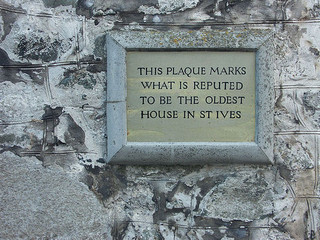 You are a brand
You are a brandMy journey for personal branding started when I read an article by Jeff Atwood, Your Personal Brand. But even back then I already had my brand which I had been awarded by my co-workers. It was "revealed" to me, I did not look for it. This is the most important point regarding your personal brand: You do not have a brand but you are a brand. You are not Coca-Cola, probably you are not even a company, just a developer. Personal branding is not about creating a fake perception of yourself, choosing a fancy title or bragging about your deeds. It is about honesty and focusing on being a great person. It is the mental image people have about you. If you are not authentic whatever you do will be shit!
Understand Reputation
Your personal brand is supported by your reputation. Reputation is the opinion people have about you. For knowledge workers it is related to how much you know and how much you help others as well as general social "metrics" like how you behave or if people trust you. Everything you do gives a perception of your brand. Every small interaction in the real or digital world builds or breaks your reputation and therefore strengthens or weakens your brand. Be serious but do not be too serious.
Brand Your Accounts
Today most of our communication is digital. The first step is to show yourself. Choose a good portrait of you or maybe an unique avatar and put it on your GitHub account. You have a GitHub account, don't you ;-) Seriously, put it on all your accounts. Same goes for name and motto. If you are not sure about the motto, leave it blank for now, but you are sure about your name, right ;-) When registering new accounts try to use the same user name that fits you or your main idea of your brand. Obviously that is not always possible unless you are a very early adopter like Rands in his virtual land grab for his user name. Still I try my standard list of user names, e.g. codecop, codecopkofler or my name until I hit something that is still available. The user name is not that important while the display name shows your name in a similar way. Note that some services like Twitter allow changing the user name without problems. By branding all your accounts in a similar way people will recognize you across application and social media boundaries.
 I am not sure how anonymous accounts fit in because they are not linked to you personally. But used consistently I assume using a pseudonym for your name consistently will have the same effect. When getting famous you might need to keep up the masquerade and actually dress up like your profile picture. There are people successfully working under an obviously fake name, talking in public and still staying anonymous.
I am not sure how anonymous accounts fit in because they are not linked to you personally. But used consistently I assume using a pseudonym for your name consistently will have the same effect. When getting famous you might need to keep up the masquerade and actually dress up like your profile picture. There are people successfully working under an obviously fake name, talking in public and still staying anonymous.Define Your Motto
I briefly touched the issue of your motto. Your brand needs a motto and there is plenty opportunity to show it as most accounts offer a biography or about-me field. For example Twitter offers you 140 characters to describe yourself. While this may seem way too little space to explain your passion, idea or project, it is an excellent opportunity to focus your brand, prune it to its essential core, the motto. This pruning may take some time and it is not easy to come up with a succinct, yet powerful description of yourself. I started with a long story about me, like the one you can read here, then pruned and compressed it further and further until I got something I liked. In the end my shortest bio was 142 characters long. As additional benefit I ended with a set of bios, different in size, and I am able to choose one depending on the space that is available in my profile.
Working on your motto should get you started. There is much more I want to explain, but writing about it took more time than I had initially expected. I will publish this first part now, so you can read it while I continue writing about how to gain reputation by sharing content.








2 comments:
This is a very important topic for anyone that makes their living, their job, on selling their competence in some form or that would like to find others with a common interest. That is not only true for people in the IT industry but for anyone that meet other people on-line or in the real. It is however particularly true for people that is working as consultants in some form as that is so much about selling knowledge, an abstract value. I put a lot of effort in my branding myself but many colleagues that like me don't feel comfortable by branding themselves and I think that is sad as they then not makes themselves able to compete with others at a fair level. If you are good at something is it important to let others know about it. A colleague of mine, and earlier to you also, Peter Bjellerup, that works professionally with social networking and partly about personal branding (available everywhere, just google him ;) said once that the purpose with your CV not mainly is to be selected for the job but to be one of they that looks so interesting so that you are called for an interview where you can get a chance to give a more complete description of yourself. As the CV or your profile in any form always have to be a compressed presentation of yourself is it then important to make it look good. Everything must be true, of course, but it is not bragging to tell about everything you are good at. It is just important information that is required to make it possible for yourself to compete fairly with others. This is unfortunately something that not everyone is comfortable with.
One other thing that came to my mind when I read this is that it not only is important to brand yourself for what you would like to be found for but also to have in mind what you not want to be found for. To make it worse is that unfortunately also something that change over time. Ten-fifteen years did I enjoy working with C but today do I now want to be found for that any longer. It can also be hard to find a way to be found for what you really want to be found for. I want myself for example to be found for Java development but preferably Java development in projects with a deep focus on the quality (not only on the surface with simple metrics) but their is nearly no chances to work like that. Instead am I always found for projects that want resources to implement features without necessary waste on time on quality that is out of scope for the delivery anyway, and so am I now in doubt if I really want to be found that much for Java any longer. To build a good brand takes time and as it change over time do it unfortunately also require continuous maintenance.
Thank you Jonny. I have no advice to fix the problem with things that you do not want to be found for, other than not writing about them at all. But I agree this might change over time. For your example with C, I do not see a problem because it is part of your personal history and I believe experience in C to be very valuable, even if you are not available for that any more.
You do a great job establishing the things you care about on your current blog, so sooner or later you will be known for your focus on quality and Craftsmanship. Keep up the good work.
Post a Comment